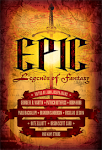 Jacques Cartier (December 31, 1491–September 1, 1557) was a French explorer, who claimed what is now Canada for France. He was the first who described and mapped the Gulf of Saint Lawrence and the shores of the Saint Lawrence River including both Iroquoian big settlements he saw in Stadaconna (Quebec City) and in Hochelaga (Montreal Island) which he documented with the name Canada. The name is derived from the Huron-Iroquois word "kanata", or village, which was incorrectly interpreted as the native term for the newly discovered land. Cartier also named "Canadiens" the inhabitants (Iroquoians) he had seen there. Thereafter the name Canada was used to designate the small French colony on these shores, and the French colonists were called Canadiens, until the mid-nineteenth century, when the name started to be applied to the loyalist colonies on the Great Lakes and later to all of British North America.
Jacques Cartier (December 31, 1491–September 1, 1557) was a French explorer, who claimed what is now Canada for France. He was the first who described and mapped the Gulf of Saint Lawrence and the shores of the Saint Lawrence River including both Iroquoian big settlements he saw in Stadaconna (Quebec City) and in Hochelaga (Montreal Island) which he documented with the name Canada. The name is derived from the Huron-Iroquois word "kanata", or village, which was incorrectly interpreted as the native term for the newly discovered land. Cartier also named "Canadiens" the inhabitants (Iroquoians) he had seen there. Thereafter the name Canada was used to designate the small French colony on these shores, and the French colonists were called Canadiens, until the mid-nineteenth century, when the name started to be applied to the loyalist colonies on the Great Lakes and later to all of British North America. [Keulemans-Great Auk]
[Keulemans-Great Auk]In 1534, Jacques Cartier set sail under a commission from King Francis I of France, hoping to discover a western passage to the wealthy markets of Asia. In the words of the king's commission, he was to "discover certain islands and lands where it is said that a great quantity of gold and other precious things are to be found". Starting on May 10 of that year, he explored parts of Newfoundland, the areas now known as the Canadian Atlantic provinces and the Gulf of St. Lawrence. On one stop at Iles-aux-Oiseaux, Cartier noted in his journal that his crew slaughtered around 1000 birds, most of them great auks (now extinct).* Cartier's first encounter with aboriginal people, the Mi'kmaq (Mic-mac), was brief and some trading occurred.
On his second encounter Cartier noted in his journal that he panicked as 50 Mi'kmaq canoes surrounded one of his long boats. Despite the Mi'kmaq signs of peace Cartier ordered his men to shoot two warning shots over their heads. The Mi'kmaq paddled away.**
Cartier's third encounter took place at Baie de Gaspé with the St. Lawrence Iroquoians, where on July 24, without their assent, he planted a ten-meter cross bearing the words "Long Live the King of France" and took possession of the territory in the name of the king. The change in mood was a clear indication that the Iroquoians understood Cartier's actions.
From "The Illustrated History of Canada" is an entry from Jacques Cartier's journal after placing the cross on the land:
"When we had returned to our ships, the chief, dressed in an old black bear-skin, arrived in a canoe with three of his sons and his brother....And pointing to the cross he made us a long harangue, making the sign of the cross with two of his fingers; and then he pointed to the land all around about, as if he wished to say that all this region belonged to him, and that we ought not to have set up this cross without his permission...."**
Cartier ordered his men to seize the Stadacona to bring them aboard where they were provided with food and drink. "And then we explained to them by signs that the cross had been set up to serve as a landmark and guide-post on coming into the harbour, and that we would soon come back...."**
Prior to leaving for France, Cartier seized two young Iroquoian men, sons of Chief Donnacona, indicating that he would bring them back to the chief's village the following summer. Donnacona at last agreed that they may be taken under the condition that they return with European goods to trade.
Cartier returned to France in September 1534, sure that he had reached an Asian coast.
Sources:
http://www.collectionscanada.gc.ca/2/3/h3-1323-e.html
*http://www3.sympatico.ca/goweezer/canada/z00cartier1.htm
**The Illustrated History of Canada, Edited by Craig Brown, pp.60-61
wikipedia
Photo Credits: wikipedia














5 comments:
Barbara, I nominated you for the Kreativ Blogger Award :)
http://darkwolfsfantasyreviews.blogspot.com/2008/12/kreativ-blogger-award.html
Dark Wolf, thank you.
Another truly interesting post, Barbara. When did Cartier have time to make the watches? ;-)
Aloha-
Hello Barbara, post very interesting. Do you know the beautiful song by Robert Charlebois on Jacques Cartier ?
François
Cloudia, I believe the watches came several hundred years later.
François, no, I haven't heard that song. I'll have to look it up.
Post a Comment